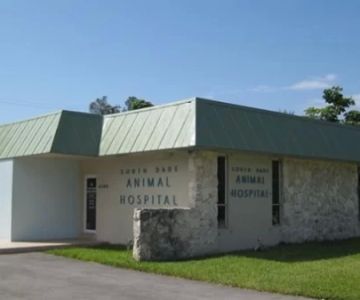Can a Veterinarian Become a Doctor?
As veterinary medicine continues to evolve, many people wonder if a veterinarian can become a medical doctor (MD). This question often arises when veterinarians consider switching careers, or when people are curious about the differences and similarities between veterinary and human medicine. Although the fields share many characteristics, becoming a medical doctor from a veterinarian is not a simple transition. However, it is possible with the right education, experience, and determination.
Understanding the Roles: Veterinarian vs. Medical Doctor
The first step to understanding if a veterinarian can transition into becoming a doctor is to know the differences between the two roles. A veterinarian specializes in animal health, diagnosing and treating a variety of conditions in animals. On the other hand, a medical doctor specializes in human health, treating illnesses, injuries, and diseases in people. While both careers involve diagnosing, treating, and preventing diseases, the focus of their practice differs significantly.
Veterinarians are experts in animal care and often deal with multiple species, from domestic pets to livestock. Their education involves learning about animal anatomy, diseases, and treatments. A doctor, however, focuses on human anatomy, physiology, and the intricate medical needs of people. These differences are key to understanding why the path from a veterinarian to a doctor is challenging, yet not impossible.
The Education Requirements: From Veterinary Medicine to Human Medicine
To transition from a veterinarian to a medical doctor, one must go through a series of educational requirements. The first step is recognizing that a veterinarian with a degree in veterinary medicine (DVM or VMD) will need to complete medical school, which typically takes an additional four years of study. While veterinarians have extensive knowledge of the scientific principles of medicine, medical school focuses on human-specific anatomy, pharmacology, and patient care. Therefore, additional training is required to qualify as an MD.
For many veterinarians considering this transition, it’s important to start with a pre-med course if they didn’t take enough human biology courses during their veterinary studies. Medical schools often look for candidates who have a strong foundation in biology, chemistry, and physics—subjects typically covered during undergraduate studies but which may need further study for someone coming from veterinary school.
The Challenges of Transitioning from Veterinary Medicine to Human Medicine
While it is technically possible for a veterinarian to become a doctor, there are several challenges in the transition. One of the biggest hurdles is the amount of time and money required to complete medical school. For example, medical school typically takes four years, followed by residency programs that can last anywhere from three to seven years, depending on the specialty chosen. This is in addition to the time already spent completing veterinary school, which can be upwards of 8 years. This lengthy and expensive process is a significant consideration for any veterinarian contemplating this career change.
Another challenge is the emotional and physical toll. As a veterinarian, one is often accustomed to dealing with animals in a clinical setting, whereas as a medical doctor, one must interact directly with human patients. The emotional connection between veterinarians and their patients can be different from that of doctors with their patients. In human medicine, the emotional dynamics can be more complex, and veterinarians must be prepared for these shifts if they intend to make the change.
How Do Veterinarians Qualify for Medical School?
To qualify for medical school after being a veterinarian, a person must first meet the prerequisites set by the medical school. These include completing a specific set of undergraduate courses, including subjects like biology, chemistry, and organic chemistry, along with clinical experience. Many veterinarians already have experience with medical procedures, diagnostics, and animal treatment, which can be an advantage when applying to medical school. However, a veterinarian must also be able to prove that they can handle human-focused medicine.
Some veterinarians may also have to take the Medical College Admission Test (MCAT), a standardized exam required for admission to many U.S. medical schools. The MCAT assesses knowledge in areas like biology, physics, and critical thinking, all of which are essential for success in medical school.
The Benefits of Transitioning from Veterinarian to Medical Doctor
Despite the challenges, there are several benefits to transitioning from veterinary medicine to human medicine. One significant advantage is that veterinarians often have a strong foundation in diagnostics and patient care, both of which are transferable to human medicine. A veterinarian may also bring a unique perspective to the medical field, particularly when it comes to specialized knowledge about animals, which could be beneficial in fields like public health, epidemiology, and even some areas of surgery.
Additionally, becoming a doctor after being a veterinarian can provide a sense of personal fulfillment for those who have a passion for human medicine. The opportunity to directly impact human lives and improve the health of individuals can be an incredibly rewarding experience for many veterinarians.
Is It Worth It for Veterinarians to Become Medical Doctors?
Whether it’s worth the time, effort, and financial investment for a veterinarian to become a medical doctor depends on the individual’s personal motivations and career goals. The decision to shift from veterinary medicine to human medicine is deeply personal and requires a strong commitment to a long and challenging educational journey.
Before making this decision, veterinarians should carefully evaluate their reasons for pursuing human medicine. Some may wish to make the switch because of an interest in human anatomy, disease prevention, or patient care, while others may want to explore more opportunities within the medical field. Whatever the motivation, it’s crucial for veterinarians to have a clear understanding of the challenges they will face and the path they must take to become a medical doctor.
Conclusion: The Path from Veterinarian to Medical Doctor
In conclusion, while it is possible for a veterinarian to become a medical doctor, it requires significant dedication, time, and financial resources. The educational path is long and demanding, and the transition from animal care to human care involves overcoming unique challenges. However, for those passionate about medicine and patient care, it can be a highly rewarding journey. If you're a veterinarian contemplating this transition, it’s important to do thorough research, understand the educational requirements, and be prepared for a rigorous but fulfilling career in human medicine.











